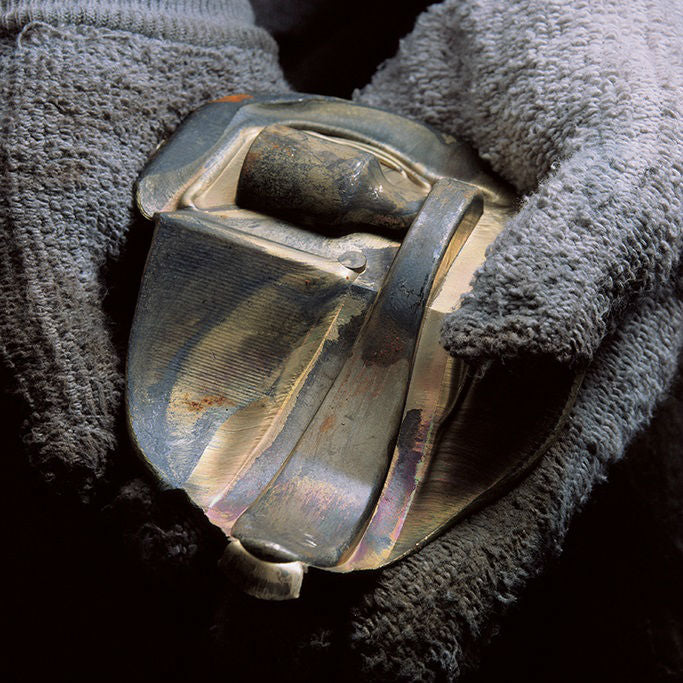
Decorative Hardware Material Guide
There are a lot of considerations to take when selecting hardware. You'll think about the size, the shape, the finish, and maybe the warranty. One thing that is often overlooked is the material. Underneath every piece of hardware's exterior is the base material. Although it's not typically seen, it is very important to keep in mind when choosing your hardware.
Brass
Most high-end hardware is made from brass. This quality material provides an excellent base for finishing. Finishes over brass are much more durable than finishes over zinc and they commonly look better too. Being incredibly malleable, brass also lends itself well to ornate details such as coined edges, knurling, and beading.
Brass is available lacquered or unlacquered, each with its own advantages. Unlacquered brass hardware is considered a living finish. Over time it will age and tarnish. The change is graceful and the end result gives the hardware additional character. For those who'd like their finish to remain the same, lacquered brass is resistant to tarnishing. However, over a long period of time, or if exposed to harsh air, the lacquer can begin to chip or flake off, giving the hardware a less than desirable appearance and exposing the underlying finish to tarnish. But fear not, in general, lacquered brass products will fare just fine indoors and outdoors if away from the coast. Alternatively, some manufacturers offer PVD or lifetime finishes. These high-tech finishes go through a complicated process which creates an extremely durable coating. The most notable of these finishes is Baldwin Hardware's Lifetime finishes, which are guaranteed not to tarnish as long as you own the product.
Pros:
- High quality
- Superior finishing
- Rust resistant
- Can support fine detailing and intricate shapes
- Available with PVD finishes
- Unlacquered brass is antimicrobial
Cons:
- Soft metal is easier to damage or ding
- Can tarnish if not lacquered
Recommended Manufacturers:
- Alno Inc. - Cabinet hardware
- Baldwin - Cabinet and door hardware
- Colonial Bronze - Cabinet Hardware
- Emtek - Cabinet and door hardware
- Water Steet Brass - Cabinet and door hardware
- Valli & Valli - Door hardware
- Omnia - Cabinet and door hardware

Bronze
Bronze is an old world material that has been used as early as 4500 BC. Revered for it's strength and easiness to cast, over the years it has been used to make weapons, statues, instruments and more. Bronze does not deteriorate in coastal regions as many other metals do. However, like unlacquered brass, bronze is considered a living finish and will change color over time. When bronze is exposed to air it oxidizes, browning and darkening. In exterior environments, bronze will frequently turn a turquoise green. The changing finish is not considered a defect. It is part of the natural beauty of bronze.
Pros:
- Strong and durable
- Excellent for coastal environments
- Has a high end textured finish
- Well suited for rustic and old world designs
Cons:
- Limited finish options
- Having a living finish is not always desirable
- More expensive than other material options
Recommended Manufacturers:
- Ashley Norton - Cabinet and door hardware
- Hardware Renaissance - Cabinet and door hardware
- Rocky Mountain Hardware - Cabinet Hardware
- Sun Valley Bronze - Cabinet and door hardware

Stainless Steel
Stainless steel is one of the most common finishes requested for decorative hardware. This durable finish is incredibly hardy, but keep in mind that it is possible for stainless steel to rust. Luckily, stainless steel is very resilient and rust can be quickly buffed away. If your hardware will be in corrosive air, it may be prudent to opt for 316 (marine grade) stainless steel over the more common 304 grade stainless steel. 316 stainless is more expensive and less common, but offers superior strength against rust.
Pros:
- Low maintenance
- Durable and resilient
- Good for coastal and exterior conditions
Cons:
- Limited finish options
- Not typically available in more traditional designs
Recommended Manufacturers:
- Emtek - Cabinet and door hardware
- FSB - Door hardware
- Inox - Door Hardware
- Karcher - Door hardware
- Omnia - Cabinet and door hardware
- Linnea - Cabinet hardware

Steel/Iron
Steel hardware is one of the most economical hardware materials. It is commonly used for commercial and exterior hardware, although it is sometimes used for cabinet hardware as well. Steel is very strong although it is very prone to rust. If your steel hardware will be exposed to the elements, there is a high likelihood that it will eventually rust. Because of this, for exterior applications, we typically recommend products with a thick powder or galvanized coating, or a different material altogether.
Pros:
- Economically priced
- Strong
Cons:
- Likely to rust if not properly finished or exposed to harsh air
Recommended Manufacturers:
- Acorn Manufacturing - Door and gate hardware
- Agave Ironworks - Cabinet, door, and gate hardware
- Inox - Door Hardware
- Hardware Renaissance - Cabinet and door hardware

Zinc Alloy
Over the last several years, hardware made from zinc alloys has been growing in popularity. Hardware made from zinc alloys tends to be a more cost-effective option than other metals. The quality of hardware can vary from manufacturer to manufacturer, with some pieces looking better than others. Generally, the price will be indicative of the quality and appearance.
Pros:
- Economically priced
- Available in a wide variety of styles and finishes
Cons:
- Weaker than other alternatives
- Finishes have a hardware time attaching to zinc. Sometimes they don't look as good or last as long.
Recommended Manufacturers:
- Amerock - Cabinet hardware
- Belwith Keeler - Cabinet hardware
- Top Knobs - Cabinet hardware
- Atlas Homewares - Cabinet hardware
- Manzoni - Cabinet hardware

Pewter
Pewter is the softest metal used for hardware fabrication. Because of this, pewter hardware is typically used for cabinet hardware with highly intricate details. A few years ago, some pewter hardware was manufactured including high contents of lead, however, nowadays most pewter hardware is lead-free.
Pros:
- Intricate detailing
- Unique designs
Cons:
- Soft metal is relatively easy to damage or ding
- Can develop a patina that needs to be cleaned
- Some pewter products contain lead
- More expensive than other options
Recommended Manufacturers:
- Anne at Home - Cabinet hardware
- Carpe Diem - Cabinet hardware
- Edgar Berebi - Cabinet hardware
- Manzoni - Cabinet hardware



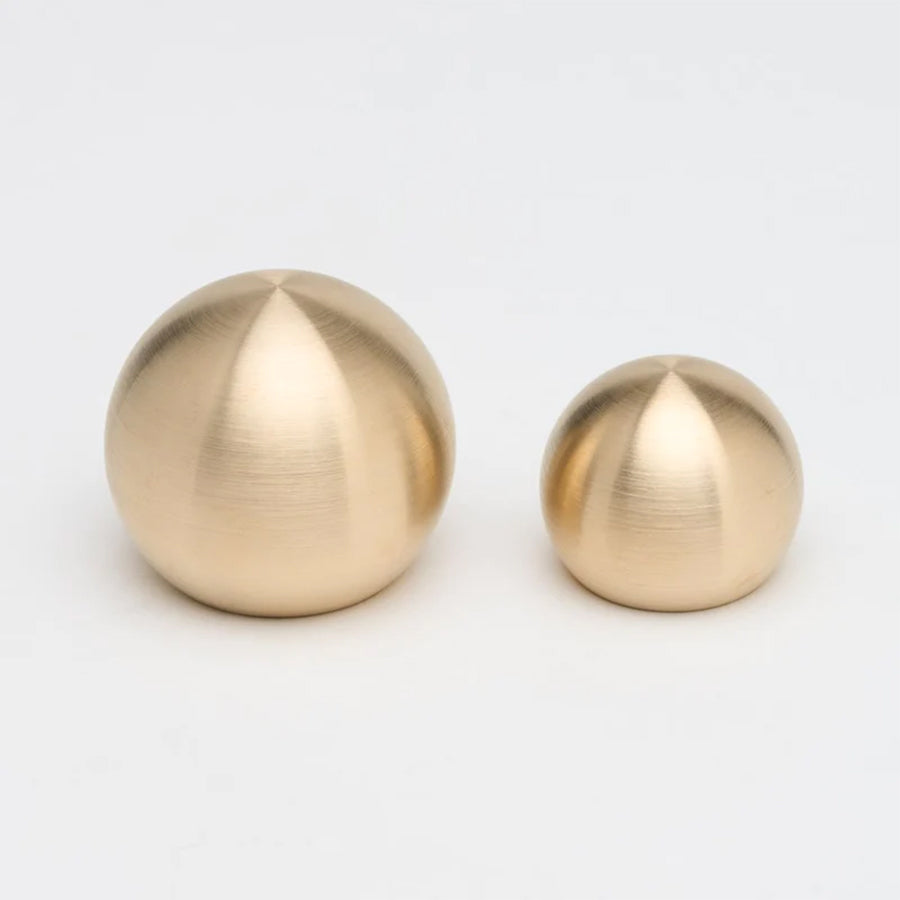
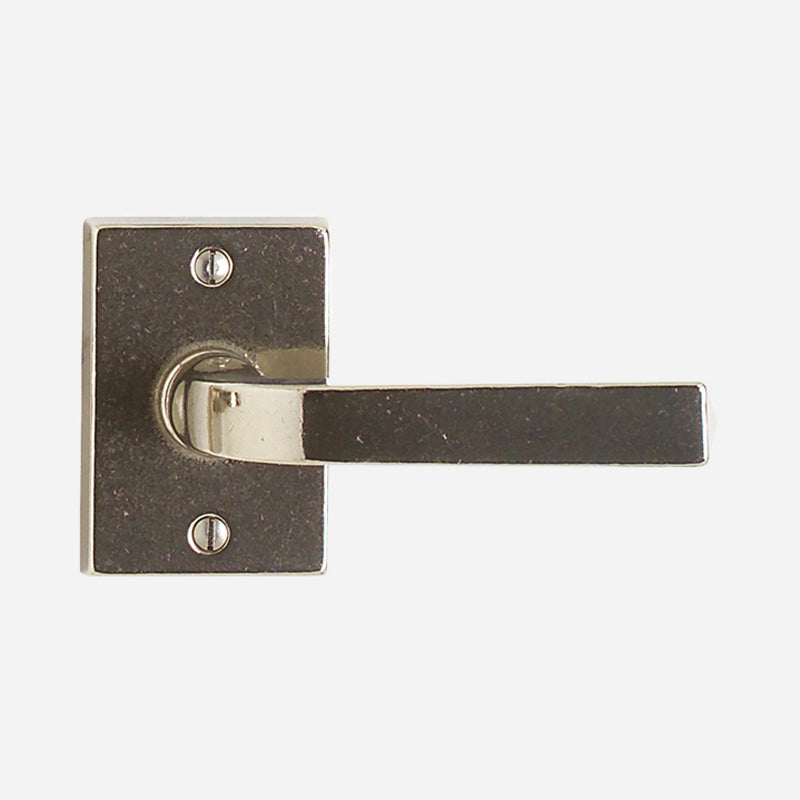
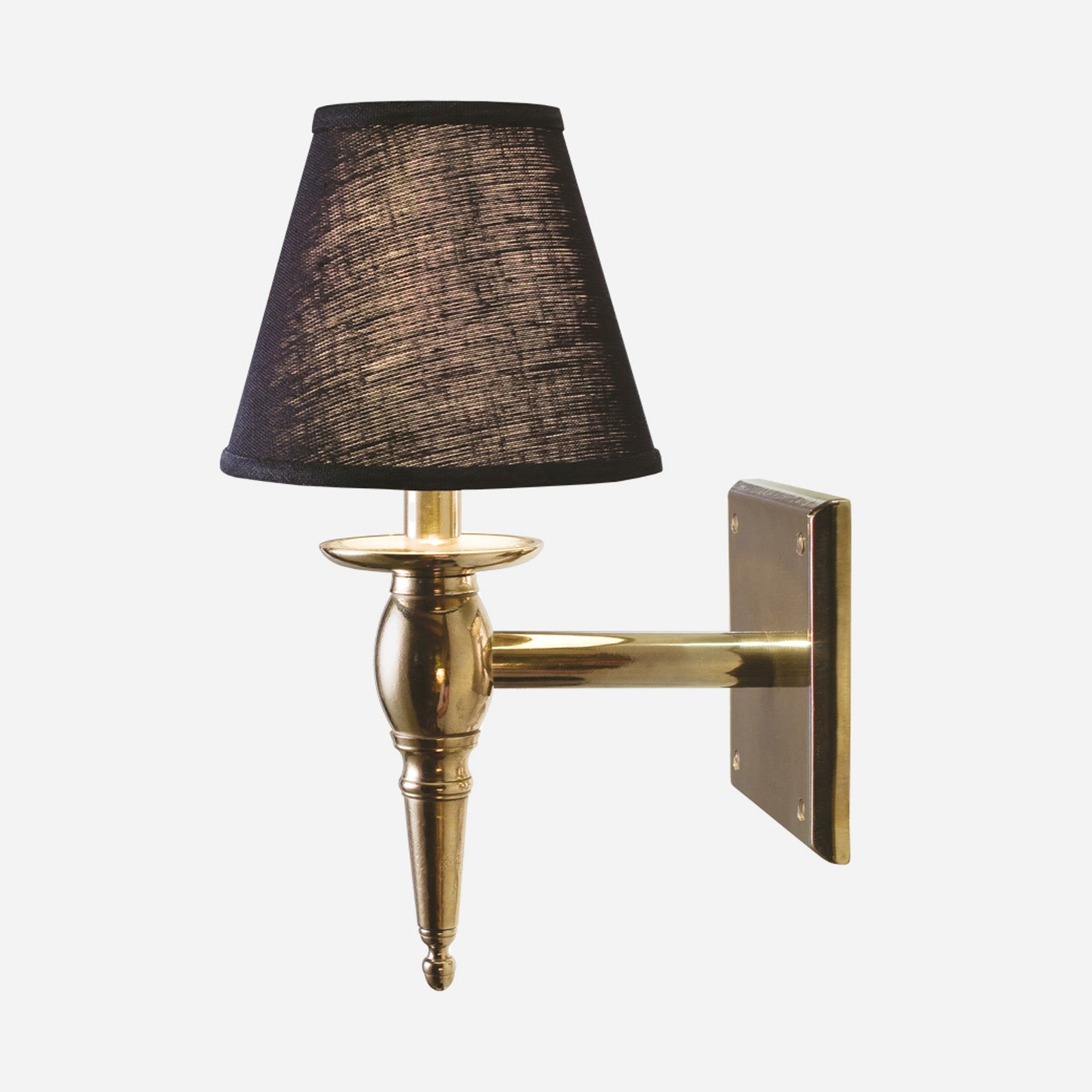
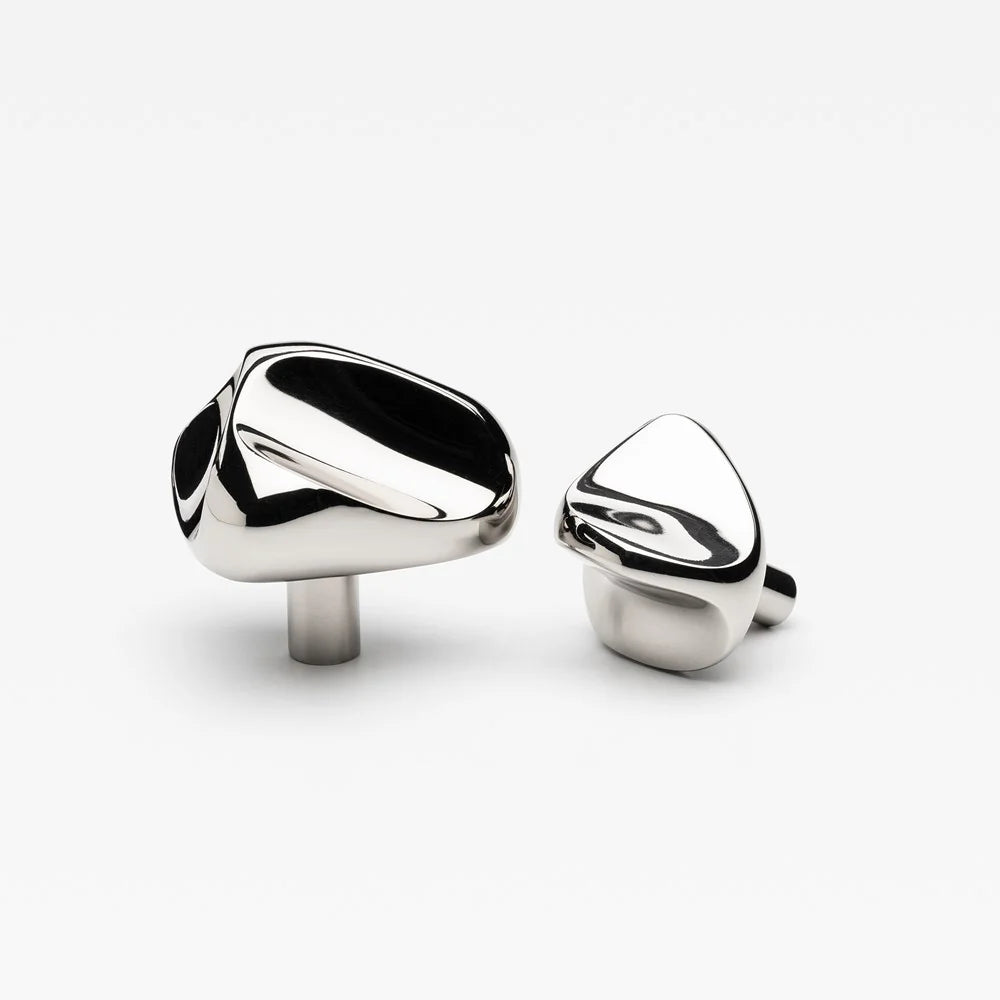
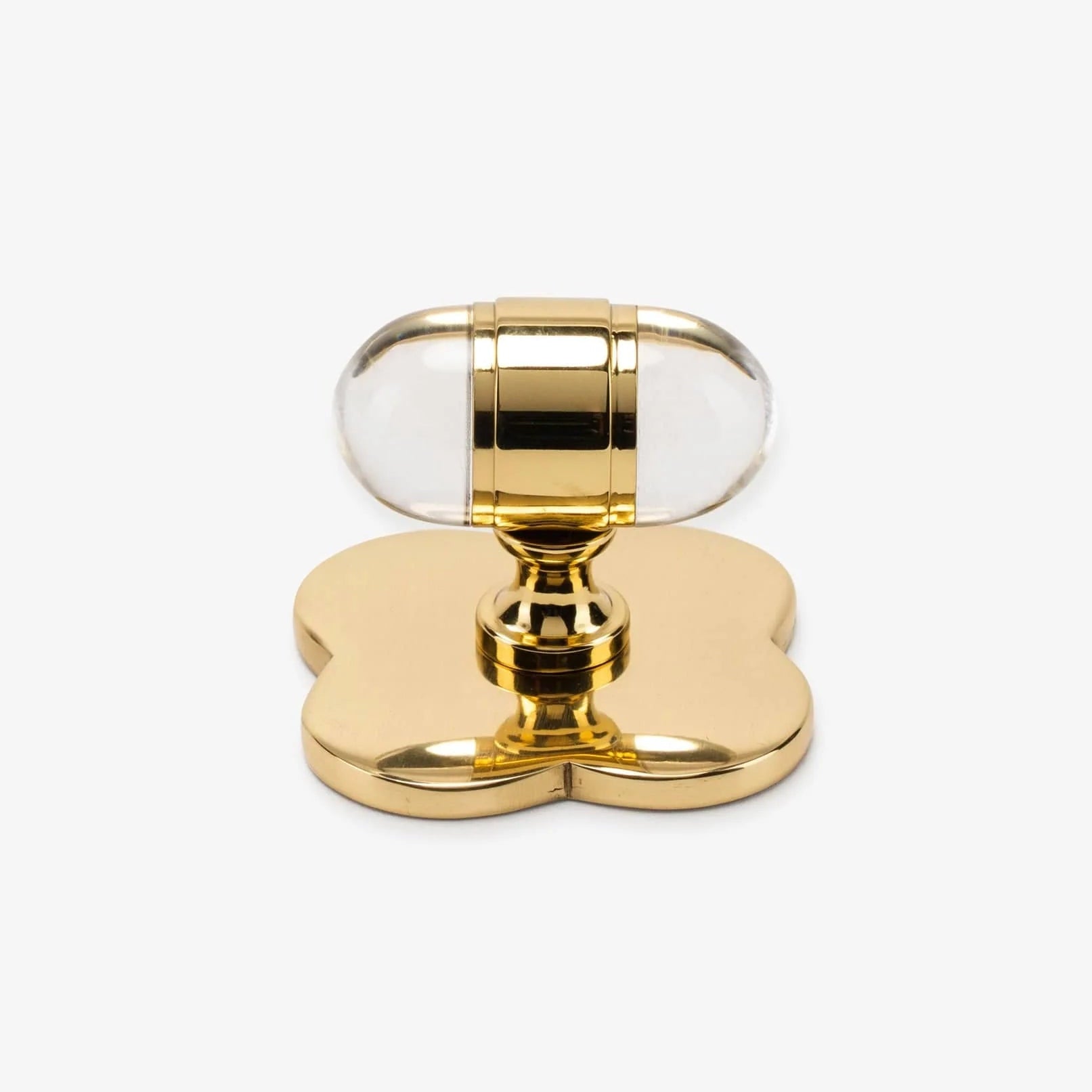


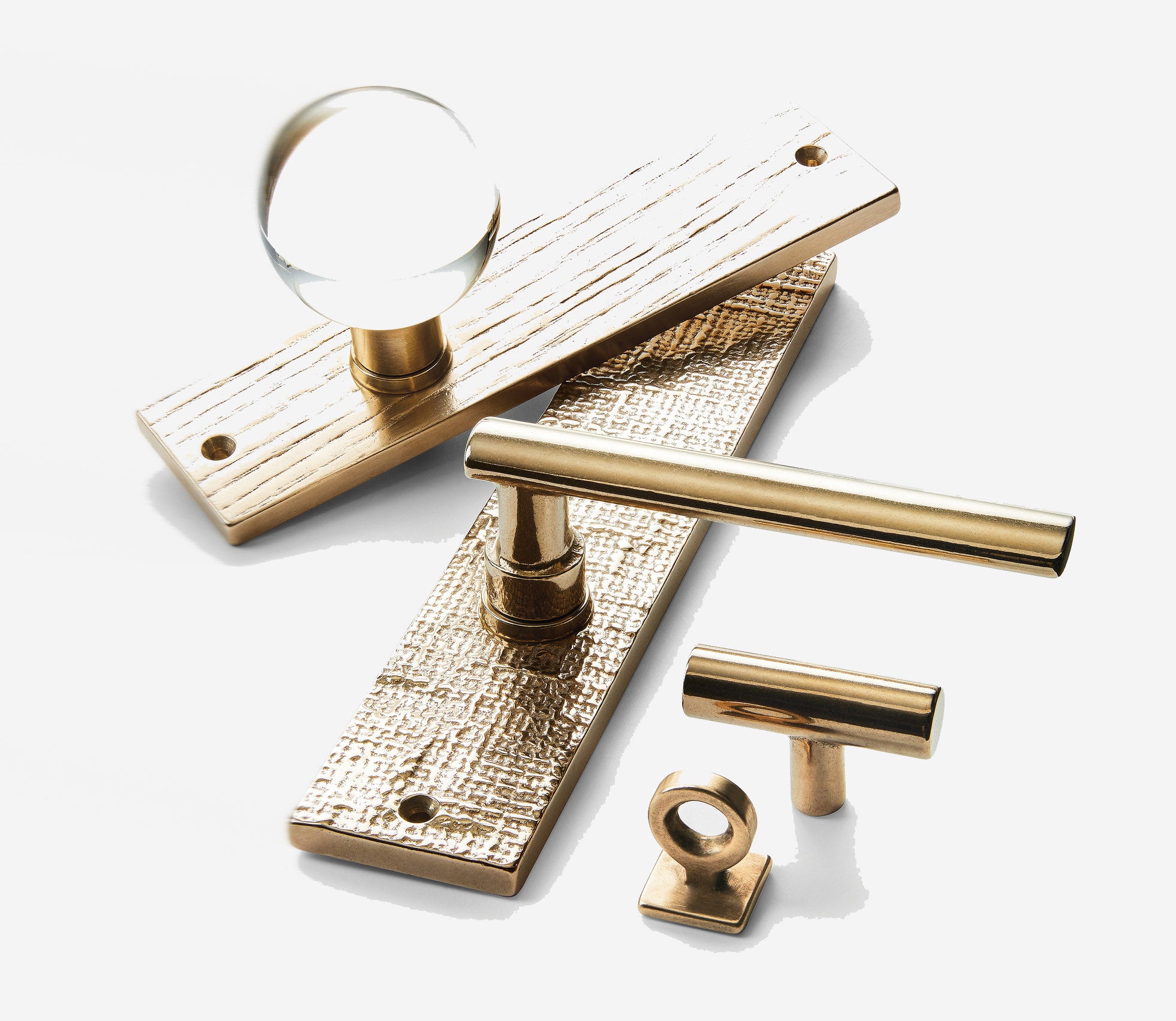
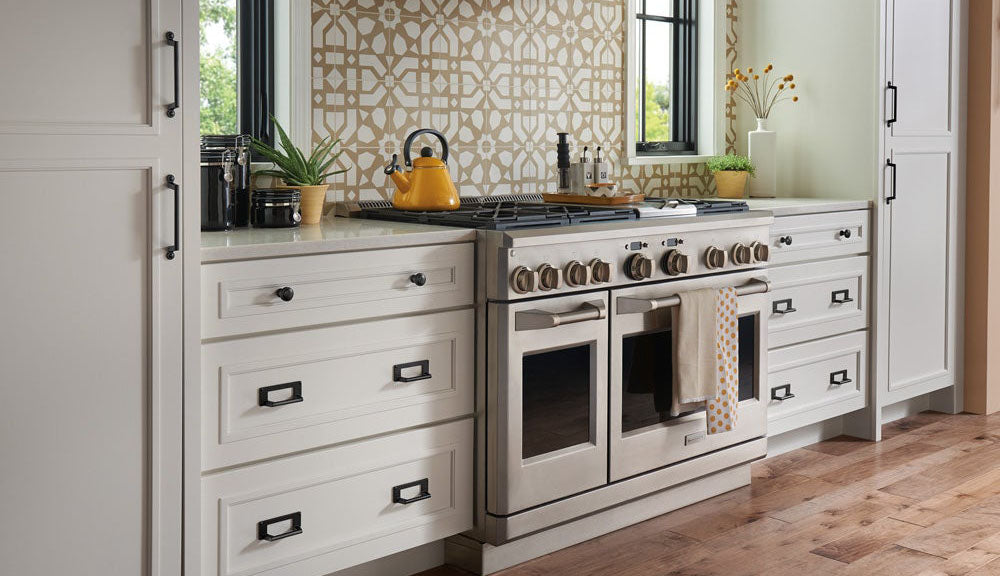
Leave a comment
This site is protected by hCaptcha and the hCaptcha Privacy Policy and Terms of Service apply.